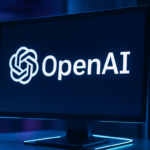Chipmind, a Zurich-based startup, has emerged from stealth mode with an innovative approach to advancing microchip development through artificial intelligence (AI). Having secured a significant $2.4 million pre-seed round led by Founderful, the company is poised to refine and expand its offerings in the semiconductor industry. Embracing the complexities of chip design, Chipmind seeks to empower engineers by reducing repetitive tasks and optimizing processes, thereby fostering innovation.
Chipmind’s recent funding round, led by Founderful—a Swiss pre-seed fund known for investing in ambitious tech startups—marks a notable moment for the startup. Founderful has previously invested in over 60 startups, building a name for itself in backing technological innovation in Switzerland. With this funding, Chipmind aims to expand its engineering team, accelerate product development, and strengthen its relationships with key players in the semiconductor field.
What Drives Chipmind’s Approach to AI in Chip Design?
At the core of Chipmind’s innovation are AI agents designed explicitly for chip design and verification. Founded by Sandro Belfanti and Harald Kröll, both seasoned experts in AI and semiconductor design, the company offers tools that promise to integrate smoothly into existing workflows. The duo’s extensive experience, having developed over 20 chips together, underscores their in-depth understanding of industry demands.
How Do Chipmind Agents Revolutionize Chip Development?
Chipmind Agents offer a unique approach to chip verification and design. These AI agents are designed to adapt and work collaboratively within a customer’s proprietary environment, potentially reducing the significant time investment required for complex design tasks. By doing so, Chipmind aims to enhance productivity and allow engineers more room for creative problem-solving.
Co-founder Harald Kröll emphasized the importance of design awareness, noting that the AI tools are tailored to comprehend the intricate aspects of chip development that traditional tools might overlook.
“Our ‘design-aware’ agents are engineered to holistically understand the entire chip context, not just the surrounding tools.”
By offering such agents, Chipmind aims to assist engineers in accelerating their work on complex tasks.
Meanwhile, Sandro Belfanti shared insights into the potential of Chipmind Agents to act as collaborative aids in the engineering process. He pointed out that mundane and monotonous tasks in chip development could now be managed by AI, leaving engineers to focus on more creative engineering challenges.
“With Chipmind Agents, we’re finally bringing that solution to life: AI agents that can autonomously handle the boring parts, letting engineers focus on what truly matters: innovation,”
Belfanti stated.
Chipmind’s vision resonates with previous industry insights, emphasizing the necessity of tools that align closely with engineers’ workflows. Past efforts at integrating AI into chip design encountered hurdles in adaptability to custom environments, a challenge Chipmind seeks to address with its comprehensive solution.
As Chipmind embarks on this venture, the potential implications of its AI tools in the semiconductor industry remain significant. With AI-driven agents positioned to automate and enhance the engineering workflow, the startup aims to cut down on time-intensive tasks. This approach could stimulate innovation by allowing engineers to concentrate on more strategic challenges. Furthermore, Chipmind’s collaboration with industry leaders and its strengthened team indicate a commitment to evolving its product offerings to meet the changing demands of chip design. The company’s success hinges on the effectiveness and seamless integration of its agents into diverse development contexts, offering convenience and efficiency without compromising on quality.










